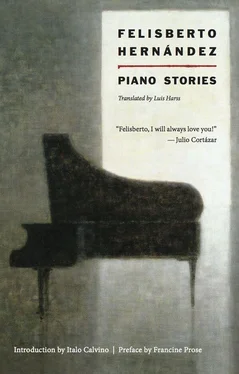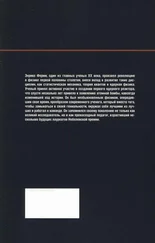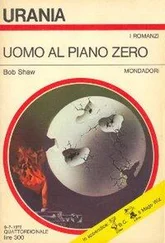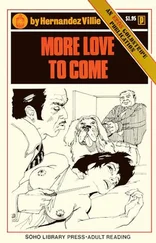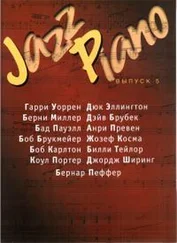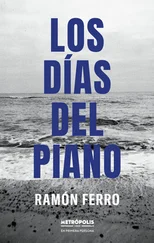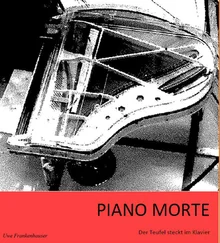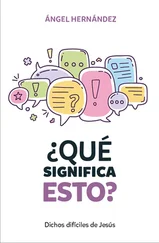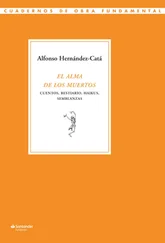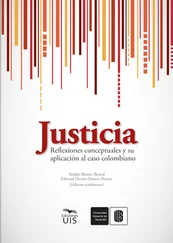Felisberto Hernandez - Piano Stories
Здесь есть возможность читать онлайн «Felisberto Hernandez - Piano Stories» весь текст электронной книги совершенно бесплатно (целиком полную версию без сокращений). В некоторых случаях можно слушать аудио, скачать через торрент в формате fb2 и присутствует краткое содержание. Год выпуска: 2014, Издательство: New Directions, Жанр: Современная проза, на английском языке. Описание произведения, (предисловие) а так же отзывы посетителей доступны на портале библиотеки ЛибКат.
- Название:Piano Stories
- Автор:
- Издательство:New Directions
- Жанр:
- Год:2014
- ISBN:нет данных
- Рейтинг книги:4 / 5. Голосов: 1
-
Избранное:Добавить в избранное
- Отзывы:
-
Ваша оценка:
- 80
- 1
- 2
- 3
- 4
- 5
Piano Stories: краткое содержание, описание и аннотация
Предлагаем к чтению аннотацию, описание, краткое содержание или предисловие (зависит от того, что написал сам автор книги «Piano Stories»). Если вы не нашли необходимую информацию о книге — напишите в комментариях, мы постараемся отыскать её.
Piano Stories
Piano Stories — читать онлайн бесплатно полную книгу (весь текст) целиком
Ниже представлен текст книги, разбитый по страницам. Система сохранения места последней прочитанной страницы, позволяет с удобством читать онлайн бесплатно книгу «Piano Stories», без необходимости каждый раз заново искать на чём Вы остановились. Поставьте закладку, и сможете в любой момент перейти на страницу, на которой закончили чтение.
Интервал:
Закладка:
“Have you ever heard anything like it?” Mary said, reading her the item. “I’m not only going to get a divorce but kick up the biggest row this country has ever seen.”
“Good for you, at last you’ve come down out of your cloud!” shouted Prairie, extricating her hands, which were raw from scrubbing pans. And, at the first chance she had, while Mary strode frantically up and down, tripping over innocent plants and flowerpots, she hid the book of poems from her.
The next day the chauffeur drove up wondering how to evade Mary’s questions about Horace, but she only asked him for the money and then sent him back to the black house to fetch the twin called Mary. Mary — the twin — arrived in the afternoon and told her all about the spy they had to call Miss Eulalie. At first Mary — Horace’s wife — was aghast. In a faint voice, she asked:
“Does she look like me?”
“No, Madam — she’s blonde and she dresses differently.”
Mary — Horace’s wife — jumped up, but then dropped back into her armchair, crying at the top of her lungs. The fat cousin appeared and the twin repeated the story. Prairie’s huge breasts heaved as she broke into pitiful moans, and the parrot joined the racket screeching:
“Hello, milksops!”
VIII
Walter was back from a vacation and Horace was having his nightly showings again. The first night, he had taken Eulalie into the show room with him, sat her next to him on the podium and kept his arms around her while he watched the other dolls. The boys had made up scenes with more important characters than usual. There were five in the second glass case, representing the board of a society for the protection of unwed mothers. One of them had just been elected president of the board; another, her beaten rival, was moping over her defeat. He liked the beaten rival best and left Eulalie for a moment to go and plant a kiss on her cool forehead. When he got back to the podium he listened for the buzz of the machines through the gaps in the music and recalled what Alex had told him about Eulalie’s resemblance to a war spy. Nevertheless, he feasted his eyes greedily on the varied spectacle of the dolls that night. But the next day he woke up exhausted and toward evening he had dark thoughts of death. He dreaded not knowing when he would die, or what part of his body would go first. Every day it was harder for him to be alone. The dolls were no company but seemed to say, “Don’t count on us — we’re just dolls.” Sometimes he whistled a tune, but only to hang from the thread of sound as if it were a thin rope that snapped the moment his attention wandered. Other times, he talked to himself aloud, stupidly commenting on what he was doing, “Now I’m in my study. I’ve come to get my inkpot.” Or he described his actions as if he were watching someone else: “Look at him, poor idiot — there he is, opening a drawer, unstopping the inkpot. Let’s see how long he has left.” When his fear caught up with him, he went out.
Then, one day, he received a box from Frank. He had it pried open: it was full of arms and legs. He remembered asking Frank for discards and hoped the box did not include any loose heads, which would have unsettled him. He had it carried in to the glass cases where he kept the dolls waiting to be assigned their roles, and called the boys on the phone to explain how he wanted the arms and legs incorporated into the scenes. But the first trial angered him: it was a disaster. The moment he drew the curtain, he saw a doll dressed in mourning, seated at the foot of what looked like the steps of a church. She was staring straight ahead, with an incredible number of legs — at least ten or twelve — sticking out from under her skirt. On each step above her lay an arm with the palm of the hand turned up. “The clumsy fools,” he said to himself. “They didn’t have to use all the arms and legs at once.” Without trying to figure out the meaning of the scene, he opened the drawer with the captions and read, “This is a poor widow who has nothing to eat. She spends her day begging and has laid out hands like traps to catch alms.” “What a dumb idea,” he went on mumbling to himself. “And what an undecipherable mess they’ve made of it.” He went to bed in a bad mood. On the point of falling asleep, he saw the widow walking with all her legs, like a spider.
After this setback Horace felt very disappointed in the boys, the dolls, and even Eulalie. But a few days later Frank took him out for a drive. Suddenly, on the highway, Frank said:
“See that small two-story house by the river? That’s where that little shy man — you remember, the one who bought your blonde’s sister — lives with your — uh — sister-in-law.” He slapped Horace on the leg and they both laughed. “He only comes at night. Afraid his mother will find out.”
The next morning, toward noon, Horace returned to the spot alone. A dirt road led down to the shy man’s house by the river. At the entrance to the road stood a closed gate, and next to it a gatehouse probably belonging to the forest ranger. He clapped, and an unshaven man in a torn hat came out chewing on a mouthful of something:
“Yeah — what is it?”
“I’ve been told the owner of that house over there has a doll. .”
The man, now leaning back on a tree, cut him short:
“The owner’s out.”
Horace drew several bills from his wallet, and the man, eyeing the money, began to chew more slowly. Horace stood there thoughtfully rippling the bills as if they were a hand of cards. The man swallowed his mouthful and watched. After giving him time to imagine what he could do with the money, Horace said:
“I might just want to have a quick look at that doll. .”
“The boss’ll be back at seven.”
“Is the house open?”
“No, but here’s the key,” said the man, reaching for the loot and pocketing it. “Remember, if anyone finds out, I ain’t seen you. . Give the key two turns. . The doll’s upstairs. . And, mind you, don’t leave nothing out of place.”
Horace strode with brisk steps down the road, once again full of youthful excitement. The small front door was as dirty as a slovenly old hag, and the key seemed to squirm in the lock. He went into a dingy room with fishing poles leaning against a wall. He picked his way through the litter and up a recently varnished staircase. The bedroom was comfortable — but there was no doll in sight. He looked everywhere, even under the bed, until he found her in a wardrobe. At first it was like running into one of Mary’s surprises. The doll was in a black evening gown dotted with tiny rhinestones like drops of glass. If she had been in one of his showcases he would have thought of her as a widow sprinkled with tears. Suddenly he heard a blast, like a gunshot. He ran to look over the edge of the staircase and saw a fishing pole lying on the floor below, in a small cloud of dust. Then he decided to wrap the doll in a blanket and carry her down to the river. She was light and cold, and while he looked for a hidden spot under the trees, he caught a scent that did not seem to come from the forest and traced it to her. He found a soft patch of grass, spread out the blanket, holding her by the legs, slung over his shoulder, and laid her down as gently as if she had fainted in his arms. In spite of the seclusion, he was uneasy. A frog jumped and landed nearby. As it sat there for a long moment, panting, he wondered which way it was going to leap next and finally threw a stone at it. But, to his disappointment, he still could not devote his full attention to this new Daisy Doll. He dared not look her in the face for fear of her lifeless scorn. Instead, he heard a strange murmur mixed with the sound of water. It came from the river, where he saw a boy in a boat, rowing toward him with horrible grimaces. He had a big head, gripped the oars with tiny hands, and seemed to move only his mouth, which was like a piece of gut hideously twisted in its strange murmur. Horace grabbed the doll and ran back to the shy man’s house.
Читать дальшеИнтервал:
Закладка:
Похожие книги на «Piano Stories»
Представляем Вашему вниманию похожие книги на «Piano Stories» списком для выбора. Мы отобрали схожую по названию и смыслу литературу в надежде предоставить читателям больше вариантов отыскать новые, интересные, ещё непрочитанные произведения.
Обсуждение, отзывы о книге «Piano Stories» и просто собственные мнения читателей. Оставьте ваши комментарии, напишите, что Вы думаете о произведении, его смысле или главных героях. Укажите что конкретно понравилось, а что нет, и почему Вы так считаете.
